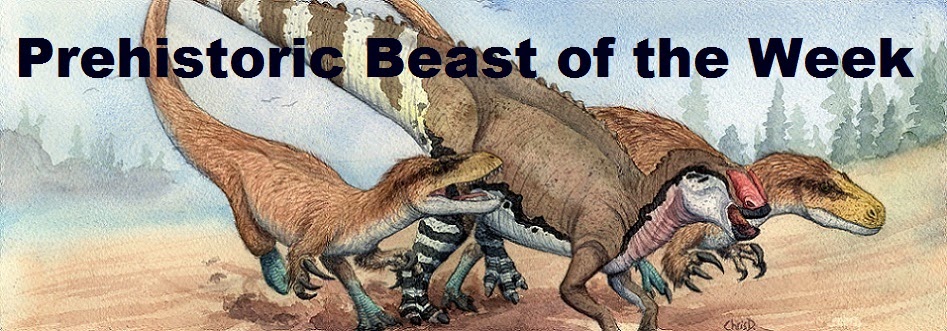This week we will be checking out a recently described, and very unique little armored dinosaur. Say hello to Stegouros elengassen!
.jpg) |
| Watercolor life reconstruction of Stegouros elengassen by Christopher DiPiazza. |
Stegouros was a plant-eating dinosaur that lived in what is now Chile during the late Cretaceous period, between about 75 and 72 million years ago. It was a member of the ankylosaur group of dinosaurs, known for sporting bony armor all over their bodies, but it was extremely tiny for that group, only measuring about six feet from beak to tail. The genus name, Stegouros, translates to "roofed tail" in reference to the bony structures growing from the top of its tail (more about that in a bit) and the species name, elengassen, is the name of a mythical creature known for its armor from Aonik'enk folklore, the indigenous people of the area in which Stegouros' bones were unearthed.
 |
| Photograph of the known skull parts of Stegouros. Image from the paper by Scoto-Acuna Et al. |
Stegouros is known from an almost complete skeleton. Almost the entire rear half of the body is known, plus armor plates, and even an almost complete skull. Stegouros had a slightly curved beak which could have been used for clipping vegetation to eat. It also had small teeth in the back of its mouth with serrations, ideal for shredding plant material before being swallowed. It had relatively small osteoderms on most of the upper part of its body, but the real impressive armor was on its tail. Unlike some of its relatives, like Ankylosaurus, which are famous for having bony clubs on the tips of their tails, Stegouros had a series of wide flat pieces of bone growing from the sides of the tail and eventually fusing together to form a solid flat piece of bone at the end of the tail, forming an almost plant-like shape. The whole structure is best described as being similar to the Aztec weapon, called a macuahuitl. Stegouros may have used this amazing tail to defend itself from potential predators, or perhaps even to fight members of its own species for dominance or over territory, mates, or resources.
 |
| Photograph of the tail of Stegouros. |
Paleontologists have determined that Stegouros evolved separately from the two other major groups of ankylosaur dinosaurs, the narrow-snouted nodosaurids, and the club-tailed ankylosaurids, forming a third major branch of armored dinosaurs, called Parankylosauria that split off earlier from the other two.
References
Soto-Acuña, Sergio; Vargas, Alexander; Kaluza, Jonatan; Leppe, Marcelo; Botelho, Joao; Palma-Liberona, José; Gutstein, Carolina; Fernández, Roy; Ortiz, Hector; Milla, Verónica; Aravena, Bárbara; Manríquez, Leslie M. E.; Alarcón-Muñoz, Jhonatan; Pino, Juan Pablo; Trevisan, Cristine; Mansilla, Héctor; Hinojosa, Luis Felipe; Muñoz-Walther, Vicente; Rubilar-Rogers, David (2021). "Bizarre tail weaponry in a transitional ankylosaur from subantarctic Chile". Nature. 600 (7888): 259–263.

No comments:
Post a Comment